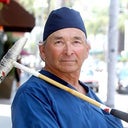Posted underRhinoplasty q&a
Answers (11)
From board-certified doctors and trusted medical professionals
Dr. Oakley Smith, MD, FRCSC

OF
Dr. Oakley Smith, MD, FRCSC
Certified Facial Plastic Surgeon
Answer
Dr. Tanveer Janjua, MD

TM
Dr. Tanveer Janjua, MD
Board Certified Facial Plastic Surgeon
Answer
Dr. Elliot M. Heller, MD

EM
Dr. Elliot M. Heller, MD
Board Certified Facial Plastic Surgeon
Answer
Dr. Giancarlo Zuliani, MD

GM
Dr. Giancarlo Zuliani, MD
Board Certified Facial Plastic Surgeon
Answer
Dr. Vincent N. Zubowicz, MD

VM
Dr. Vincent N. Zubowicz, MD
Board Certified Plastic Surgeon
Answer
Dr. Naveen Somia, MBBS, PhD, FRACS
NF
Dr. Naveen Somia, MBBS, PhD, FRACS
Specialist Plastic Surgeon
Answer
Dr. Steven Wallach, MD
SM
Dr. Steven Wallach, MD
Board Certified Plastic Surgeon
Answer
Dr. S. Randolph Waldman, MD
SM
Dr. S. Randolph Waldman, MD
Board Certified Facial Plastic Surgeon
Answer
Dr. William Portuese, MD
WM
Dr. William Portuese, MD
Board Certified Facial Plastic Surgeon
Answer
Dr. Michael T. Somenek, MD
MM
Dr. Michael T. Somenek, MD
Board Certified Facial Plastic Surgeon
Answer
More Rhinoplasty Questions
See all Rhinoplasty Q&A
WE SEND PRETTY
EMAILS
What’s trending? Who’s turning heads? Which TikTok myths need busting? We’ve got you. No fluff, no gatekeeping—just real talk. Get our free, unfiltered newsletter.





